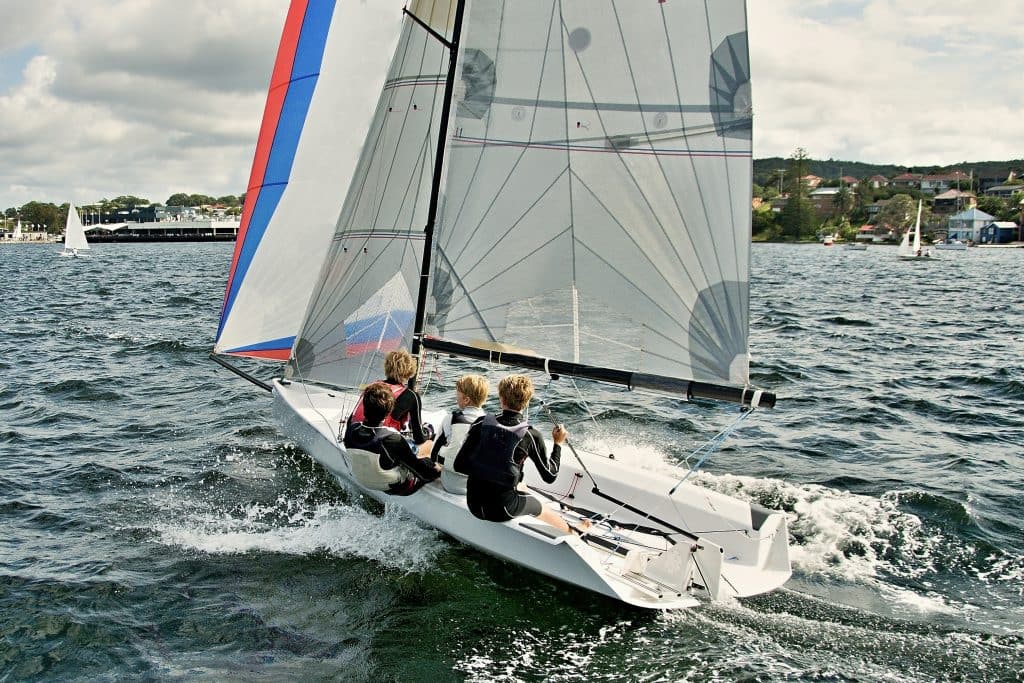What is Polypropylene Webbing?
Known for its versatility and used in a range of applications, polypropylene is classed as a thermoplastic and it combines the best features of nylon and polyester. Similar to other types of webbing, such as polyester webbing and nylon webbing, the polypropylene webbing process involves weaving the synthetic fibres together into narrow fabric strips. These strips can then be used in predominantly outdoor applications, such as luggage, backpacks, supermarket shopping trolleys or lifejackets.Features & Benefits
Polypropylene Webbing is incredibly durable which allows it to be used in products ranging from smaller, everyday items such as dog collars and leads, backpacks, and children’s items to applications in larger industries, such as medical or marine equipment. As polypropylene webbing doesn’t stretch and is water-resistant, this makes it really useful for outdoor activities, where the safety of people, pets and belongings is paramount.Polypropylene Webbing Keeps Its Colour
Unlike some other synthetic fibres, Polypropylene keeps its colour over time. This makes it incredibly beneficial for outdoor activities and applications. This is because the material isn’t dyed once it has been woven instead the weaving process uses pre-dyed yarn, so the colour doesn’t bleed and the material retains its colour.Is Polypropylene Webbing Highly Resistant?
Polypropylene webbing has the major advantage of being very resistant to a number of factors, both in industry and in the household:- Water-resistant - Polypropylene webbing does not absorb liquids, making it ideal for outdoor clothing and for applications in the Marine Industry
- Chemical resistant - Polypropylene webbing does not erode very easily, making it very useful in industry.
- Mildew resistant - This webbing will not grow mould or any other fungus.
What Can Polypropylene Webbing Be Used For?
Polypropylene Webbing is one of the more affordable options and can be used for a range of everyday and industrial applications including:- Clothing/ Outdoor Apparel - Polypropylene webbing can be used for fashion accessories, such as bags and for outdoor clothing where it brings many advantages such as durability, abrasion resistance and colour fastness.
- Military - as the thermal conductivity for polypropylene webbing is very low, it is very useful for clothing in the military. The uniforms need to be resistant to staining, easy to clean and durable to withstand the harsh environments in the military.
- Medical - in the medical field, it is important that equipment can be cleaned easily and thoroughly. Polypropylene webbing is resistant to staining and chemicals, meaning it is a much more hygienic option in the medical industry.
- PPE - similarly to medical and used in the industry, it is important that PPE is tear-resistant, breathable and chemical resistant. With COVID-19, PPE has become even more important in everyday life and not just in industry.
- Textiles - furniture and clothing can be made using polypropylene webbing. This is because of its reduced tendency for the colours to fade and stain resistance. Outdoor furniture and thermal clothing make use of this type of webbing, especially for its low thermal conductivity.
- Marine applications - Polypropylene is lightweight, has excellent buoyancy and has a low water absorption rate making it ideal for a wide range of applications in the Marine sector.
What Should Polypropylene Webbing Not Be Used For?
Whilst there are many great uses for polypropylene webbing, there are some applications where it is not ideal. One of the major disadvantages of polypropylene webbing is that it is not as strong as its counterparts. Although it is highly resistant to many elements, it lacks the strength of nylon and polyester, which makes it undesirable for any heavy-duty activity, such as lifting or load-bearing. For lighter-duty applications, this type of webbing is perfect. Nylon and polyester are stronger, having a much higher tensile strength, and should be considered when choosing a load-bearing webbing. Contact our team today to find out which type of webbing would be best for your applicationHow Strong Is Polypropylene Webbing?
Polypropylene webbing is a popular webbing for use in a vast range of applications. When compared to Polyester webbing, for example, it is a more cost-effective option and is ideal in applications where meeting technical specifications is less of a requirement. However, as mentioned above, it is not suitable for applications that require heavy lifting as it is not a high-strength webbing. Polypropylene is not recommended for any applications exposed to fire or immense heat. Its lower UV resistance also adds to its relative lack of strength, as exposure to UV rays over time can contribute to the degradation of the fibres.Is Polypropylene Webbing Safe?
Polypropylene webbing is a versatile narrow fabric which can be used in many applications such as medical equipment, bag straps, sporting and outdoor applications, making it safe in both the household and in industry. However, it is important to research and understand the type of webbing needed for your application, as using an inappropriate webbing could cause harm or serious injury. Our experienced team can help you identify which fibre type is best suited to your application.Polypropylene Webbing vs. Other Types of Webbing
Nylon Webbing As An Alternative to Polypropylene
Typically stronger than polypropylene webbing, nylon webbing is used for seatbelts, backpacks in the military, lifting and towing. Nylon webbing is perfect for outdoor activities, as it has a large range of benefits:- Durability - it can be used in a range of heavy-duty applications, such as lifting or towing or for tying items down.
- UV resistant - this makes it great for outdoor furnishings and outdoor activities.
- Abrasion-resistant - with high abrasion resistance, it is less likely to break or fray when in used in harsher environments where it may be subject to repetitive mechanical actions. Limited stretching under stress - used in dog leads and collars, the material ensures safety and comfort, making it suitable for pets to wear.
- Machine washable - easy cleaning
- Bright colours - nylon comes in a range of colours, making it stand out on outdoor equipment or pet accessories.
Polyester Webbing As An Alternative to Polypropylene
Polyester webbing is another type of webbing that can be used instead of polypropylene. Some of the benefits include:- Versatile - It can be used in a wide range of applications.
- Lightweight - A lightweight material is important in many applications.
- Abrasion-resistant - although nylon is also abrasion-resistant, polyester is much more resistant, so it can be used in harsher environments. It also has a high melting point, meaning it is suitable for fire hazardous environments
- Mildew resistant - similarly to polypropylene webbing, polyester isn’t susceptible to mould growth so it’s perfect for a range of outdoor applications.
Posted 10th June 2022 by Bowmer Bond





